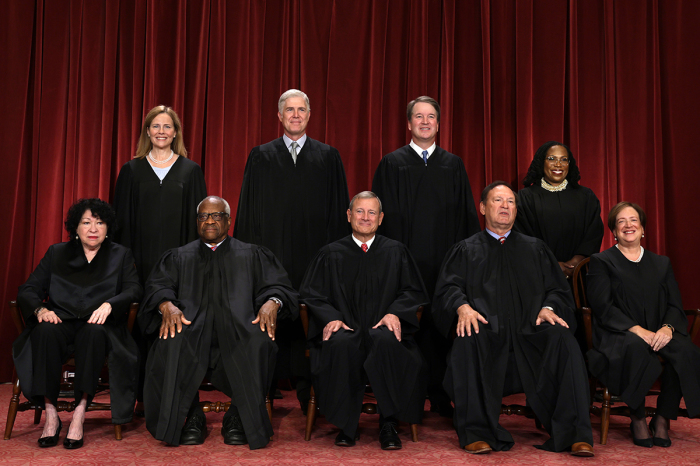Parental rights, IVF, immigration: What to expect if Trump defeats Harris

Supreme Court
The next president could significantly shape the future of the U.S. Supreme Court. Currently, the court consists of six justices appointed by Republican presidents and three by Democratic presidents. By the end of January 2025, three of the Republican-appointed justices and one Democratic-appointed justice will be at least 70 years old, increasing the likelihood of additional vacancies during the next administration.
Trump’s ability to appoint more justices to the court, if vacancies occur, will depend on the U.S. Senate. If the Senate remains under Republican control, Trump would likely face few obstacles in securing new appointments.
When Democrats vowed to filibuster Neil Gorsuch, Trump’s first nominee to the Supreme Court, the Republican-controlled Senate changed the rules to enable the confirmation of Supreme Court justices with a simple majority of 51 votes instead of requiring them to reach a 60-vote threshold. This enabled Gorsuch and Trump’s two other Supreme Court picks to secure confirmation.
While the Senate is currently controlled by Democrats, the RealClearPolitics “no toss ups” map, which predicts the outcome of Senate races based on polls in each of the states with a Senate seat on the ballot, forecasts that Republicans will hold 51 seats following the election while Democrats will hold 49 seats.
If that prediction holds true and Republicans secure a narrow majority in the Senate, only opposition from within the Republican Party could prevent the confirmation of justices selected by Trump. This is not an unprecedented scenario, as Sen. Lisa Murkowski, R-Alaska, opposed the confirmation of Brett Kavanaugh to the Supreme Court, while Sen. Susan Collins, R-Maine, opposed the confirmation of Amy Coney Barrett to the Supreme Court.
The ability to withstand Republican defections to Supreme Court nominations in the event of a Trump presidency will ultimately depend on the size of the Republican Senate majority. Should Trump face a Democratic Senate majority, the confirmation of any of his nominees would become difficult if not impossible as the Democrat-led upper chamber could simply refuse to hold confirmation hearings.
Ryan Foley is a reporter for The Christian Post. He can be reached at: [email protected]




























